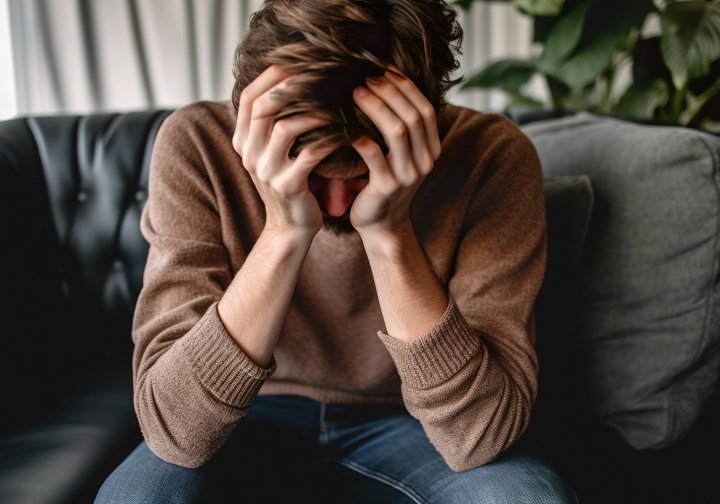Blog

How to manage anxiety disorders in everyday life
Anxiety disorders are one of the most common mental illnesses today. They affect people across all ages, genders, and life circumstances. Although anxiety is a natural part of the human psyche and helps us survive in dangerous situations, if it occurs too often, in inappropriate situations, or escalates into an intense form, it can seriously impair quality of life.
What are anxiety disorders?
An anxiety disorder is a condition in which anxiety occurs for no apparent reason or is disproportionate to the situation. It can be associated with a range of physical and psychological symptoms, such as rapid breathing, heart palpitations, muscle tension, sleep disturbances, restlessness, difficulty concentrating, or negative thoughts.
Types of anxiety disorders:
-
Generalized anxiety disorder (GAD) – chronic and long-term feelings of anxiety and worry without a clear cause.
-
Panic disorder – sudden attacks of intense anxiety (panic attacks) that can occur without warning.
-
Social phobia – fear of social situations, being judged by other people.
-
Specific phobias – intense fear of specific objects or situations (e.g., heights, insects, enclosed spaces).
-
Post-traumatic stress disorder (PTSD) – anxiety reactions to a traumatic experience.
How to manage anxiety in everyday life?
We have prepared a few tips on how to combat and overcome anxiety. However, it is important to note that different approaches or combinations of approaches may be suitable for different people. Try out what works best for you or consult your doctor or psychologist.
1. Self-awareness and acceptance
Realizing that you have anxiety and accepting it as part of your psyche is the first step to managing these states. Instead of fighting anxiety, it helps to view it as a signal that you need to change something, slow down overall, or better understand certain issues.
2. Regular daily routine
Stability and structure in your day reduce feelings of inner chaos. Sticking to a sleep schedule, eating regularly, exercising, and setting aside time for rest help maintain inner balance.
3. Breathing and relaxation exercises
Techniques such as deep abdominal breathing, progressive muscle relaxation, or mindfulness meditation help regulate the physiological manifestations of anxiety and induce calmness.
4. Physical activity
Regular exercise (even brisk walking) helps the body break down stress hormones and promotes the production of endorphins, which improve mood.
5. Journaling
Writing down thoughts, fears, or emotions helps clarify what is bothering me and gain perspective. It also allows you to track patterns and triggers of anxiety.
6. Limiting stimulants and media consumption
Caffeine, alcohol, or excessive consumption of news can exacerbate anxiety. It is a good idea to pay attention to how individual stimuli affect you and adjust your environment accordingly.
7. Support from loved ones
An open conversation with a trusted person can be very relieving. Sharing in a safe space reduces isolation and provides a sense of understanding.
8. Psychotherapy
Long-term or severe anxiety should be addressed with a professional. Psychotherapy (e.g., cognitive-behavioral therapy) helps to recognize negative patterns of thinking and behavior and learn new, healthier ways of coping with stress and emotions.
9. Medication
In some cases, anxiety can be so severe that it is advisable to support treatment with medication (e.g., antidepressants). However, this should always be done under the supervision of a psychiatrist.
10. Patience and kindness towards yourself
Managing anxiety is a process. There is no need to compare yourself to others or punish yourself for "weakness." Self-love and understanding are an important part of healing.
Anxiety disorders can be significantly limiting, but with the right support, strategies, and care, it is possible to lead a full life. However, it is important to seek help in time and not be afraid to talk about your feelings, whether with your loved ones or with professionals. We at Psymed are also here for you; simply contact us using the form.
Sources:
https://www.mentislab.cz/blog/jak-lepe-zvladat-stavy-uzkosti/
https://www.linkabezpeci.cz/poradna/uzkost
https://bezbarier.zcu.cz/wp-content/uploads/2021/09/Jak_pracovat_s_uzkost.pdf
https://nevypustdusi.cz/2020/03/18/prvni-pomoc-pri-uzkosti-v-nouzovem-stavu/
